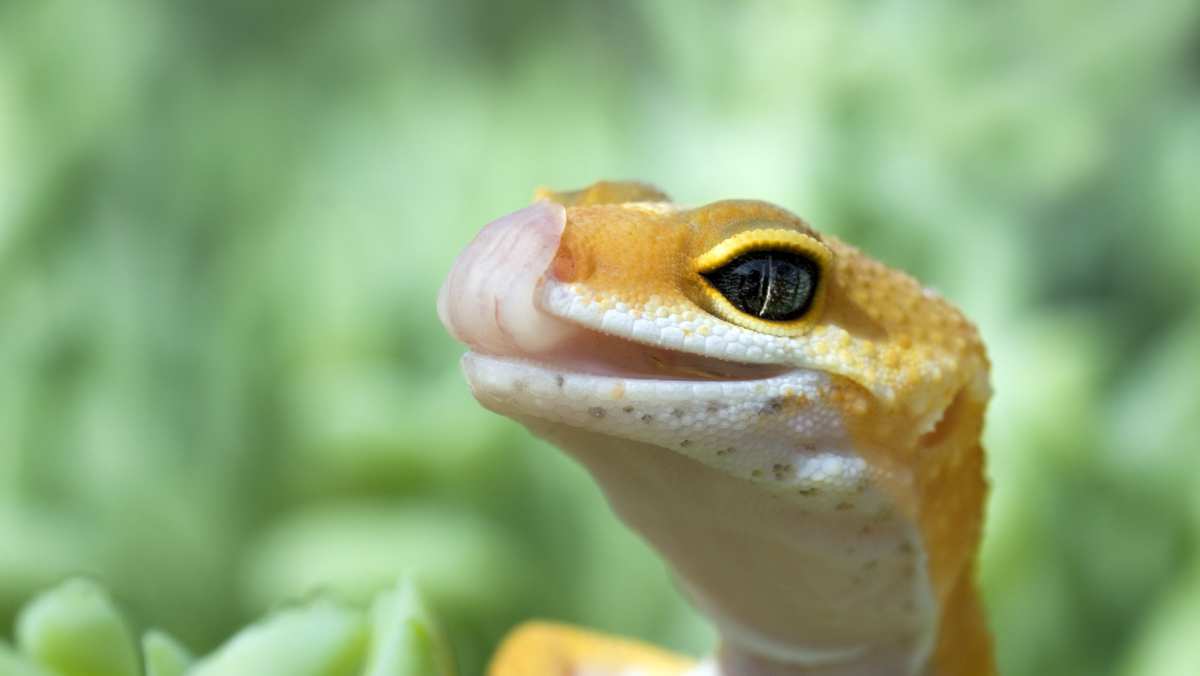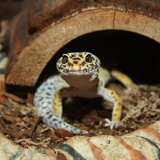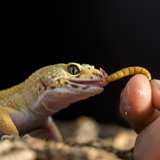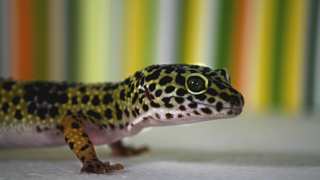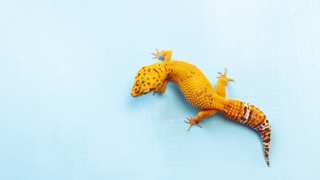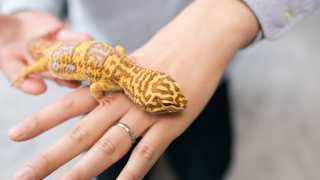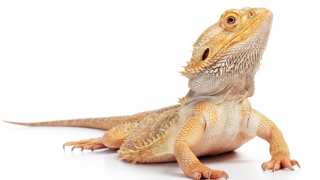Common Leopard Gecko Behavior
Climbing Their Tank
Most of the time when leopard geckos try to climb the glass walls of their tank its normal behavior. However, it can also be a sign that they are uncomfortable with their environment. If you see your gecko trying to climb out of their tank you should check the following to make sure their habitat is ideal:
- Tank size - If the tank is too small, the gecko may be climbing because they need more space
- Non-stimulating environment - Leopard geckos can get bored with their environment and the habitat in your gecko's tank is too bare or boring they will start to try to get outside their tank where it looks more interesting.
- Confusion - Most animals don't understand glass and will not know why they cannot pass through it. So sometimes your gecko may have forgotten that he/she cannot get around the glass or they may be exploring to see if any part of the glass is open so they can leave the tank.
Hiding
Many new leopard gecko owners will wonder why their gecko seems to be hiding from them. There are a couple of reasons for this, but the biggest reason is that leopard geckos are nocturnal and will usually stay in one of their hides (you should have three leopard gecko hides) all day until night.
The only time you should be concerned is if your leopard gecko has not left their hide for 24 or more hours. This can indicate that your tank may not be the right temperature or that the gecko is feeling ill and you should make sure they are not displaying any type of abnormal behavior.
Squealing / Yelping
When a leopard gecko is surprised or startled they will sometimes make a high pitched squealing sound. They do this to startle you long enough that they have time to escape. This is most common with younger leopard geckos but can happen occasionally with adult geckos too. Many owners claim that squirting a leopard gecko with a misting bottle will sometimes make them squeal.
Tail Wiggling
There are a few different tail wiggle/shake movements a leopard gecko may use.
Slow Tail ShakeWhen a leopard gecko shakes their tail slowly, they are telling other geckos that they are there and are aware of their presence. Normally the gecko will lower themselves to the ground and will shake their tail slowly. Sometimes this can also be a sign that the leopard gecko is excited.
Fast Tail ShakeMale leopard geckos will usually shake their tails rapid if they are put in the same presence as female leopard geckos. This tells the females that there is now a male in the area and that he is aware of the females being there.
Defensive Tail ShakeLeopard geckos will drop their tails if they are ever threatened so the prey will go after their tail instead of the gecko. As you can imagine, leopard geckos will shake their tail to divert attention whenever they feel threatened. Generally the gecko will lower their body to the ground and will point their tail up slowly wiggling it. They will often have their head arched up staring at the threat.
Leopard geckos may also use a defensive tail shake if they are unsure about another gecko. If your gecko is making this gesture when you are near him/her, do not try to pick them up because they may try to bite you. Instead you should let the gecko know that you are not a threat. You can try standing there until the gecko relaxes or you can slowly place your hand into the tank, away from the gecko so he/she can investigate it or hide. Eventually your gecko will become used to your presence.
Excitement Tail ShakeYou will usually see this type of tale shake when the gecko is hunting bugs/eating. Usually it is more common in younger geckos, but adult geckos will do it every now and then. When this occurs the gecko will raise their tail and slowly move it from side to side, and then when they are about to attack the insect they will quickly shake their tail before attacking.
Tongue Flicking
Leopard geckos have a Jacobson's gland, which allows them to sense objects and their environment by flicking their tongue (much like a snake does). It is not uncommon to see your leopard gecko flick his/her tongue to familiarize themselves with new items in the tank.

